An overview of the childhood and early education of William F. Buckley Jr., highlighting the experiences that shaped the journey.
William F. Buckley Jr. was a prominent American conservative intellectual, author, and political commentator. He played a significant role in shaping the modern conservative movement in the United States. As the founder and editor of the National Review, he provided a platform for conservative voices and ideas, influencing political discourse for decades. Buckley was also known for his eloquent writing style, debating skills, and his advocacy for limited government, free markets, and a strong national defense. He authored numerous books, essays, and articles, leaving a lasting legacy on American political thought.
1920: Father Expelled From Mexico
In 1920, William F. Buckley Jr.'s father, an oil developer, was expelled from Mexico when Álvaro Obregón became president.
November 24, 1925: William F. Buckley Jr. Born
On November 24, 1925, William Frank Buckley Jr., later known as a prominent conservative writer and commentator, was born in New York City.
1933: Birth of Sister Maureen Buckley-O'Reilly
In 1933, William F. Buckley Jr.'s sister, Maureen Buckley-O'Reilly, was born.
1943: Attended National Autonomous University of Mexico
In 1943, William F. Buckley Jr. attended the National Autonomous University of Mexico (UNAM).
1943: Graduation from Millbrook School
In 1943, William F. Buckley Jr. graduated from Millbrook School in Millbrook, New York, where he had founded and edited the school's yearbook, "The Tamarack". In 1943, Buckley was also a member of the American Boys' Club for the Defense of Errol Flynn during Flynn's trial for statutory rape.
1944: Vandalism of Protestant church
In 1944, Vidal implied that Buckley's siblings and Buckley had vandalized a Protestant church in their Sharon, Connecticut, hometown after the pastor's wife sold a house to a Jewish family
1945: Enrolled at Yale University
In 1945, after the end of World War II, William F. Buckley Jr. enrolled at Yale University, became a member of the Skull and Bones society, and was a masterful debater. He was also an active member of the Conservative Party of the Yale Political Union, and served as chairman of the Yale Daily News and as an informer for the FBI.
1947: Worked as a Spanish Instructor at Yale
From 1947, William F. Buckley Jr. worked as a Spanish Instructor at Yale.
1950: Graduated from Yale University
In 1950, William F. Buckley Jr. graduated with honors from Yale University, following his engagement in debate and conservative political commentary.
1951: Stopped Working as a Spanish Instructor at Yale
Until 1951, William F. Buckley Jr. worked as a Spanish Instructor at Yale.
1958: Death of Father, William Frank Buckley Sr.
In 1958, William Frank Buckley Sr., William F. Buckley Jr.'s father, passed away.
1959: Reference in The Manchurian Candidate
In 1959, William F. Buckley Jr. was referred to in Richard Condon's novel The Manchurian Candidate as "that fascinating younger fellow who had written about men and God at Yale."
September 15, 1963: Birmingham Church Bombing and Buckley's Reaction
On September 15, 1963, the bombing of a Birmingham church by white supremacists, resulting in the death of four African American girls, deeply affected William F. Buckley Jr. According to a biographer, Buckley privately wept upon learning of the incident, which marked a turning point in his views on the civil rights movement.
1964: Death of Sister Maureen Buckley-O'Reilly
In 1964, William F. Buckley Jr.'s sister, Maureen Buckley-O'Reilly, passed away.
1964: Buckley's Evolving Stance on Civil Rights
In 1964, during the administration of Lyndon B. Johnson, Buckley's writings began to show more accommodation toward the civil rights movement. He criticized practices aimed at preventing African Americans from registering to vote and condemned businesses that refused service to African Americans in violation of the 1964 Civil Rights Act.
1965: Buckley Runs for Mayor of New York City
In 1965, Buckley ran for mayor of New York City as the candidate for the new Conservative Party. He ran to restore momentum to the conservative cause and used an unusual campaign style.
1965: Buckley's stance on marijuana legalization
In 1965, William F. Buckley Jr. supported the legalization of marijuana during his candidacy for mayor of New York City.
1966: Firing Line episode on Civil Rights and Foreign Policy
In 1966, during an episode of Firing Line with William F. Buckley Jr. titled "Civil Rights and Foreign Policy", guest Floyd Bixler McKissick discussed black power and its potential impact on black contributions. Buckley expressed his endorsement of McKissick's six objectives for achieving black power, which included securing political and economic power, improving self-image, developing militant leadership, enforcing federal laws, and building a black consumer block.
January 1968: Debate against George Wallace on Firing Line
In January 1968, William F. Buckley Jr. debated against George Wallace, the segregationist presidential candidate, on an episode of Firing Line. Buckley opposed Wallace's platform and reiterated his support for black power as the organization of the black community to press for justice and opportunity.
1970: Residence in Rougemont, Switzerland
Beginning in 1970, William F. Buckley Jr. and his wife resided and worked in Rougemont, Switzerland, for six to seven weeks each year.
1970: Jim Buckley Wins Senate Seat
In 1970, Buckley celebrated the successful campaign of his older brother, Jim Buckley, on the Conservative Party ticket to capture the United States Senate seat from New York State.
1972: Buckley's Evolving Views on Marijuana
In 1972, William F. Buckley Jr. expressed support for decriminalizing marijuana usage but advocated for stricter enforcement against marijuana trafficking.
1976: Jim Buckley Loses Senate Seat
In 1976, Jim Buckley was defeated by Democrat Daniel Patrick Moynihan after serving one term in the Senate.
1982: Buckley Starts Writing on Computers
In 1982, Buckley began writing on computers, initially using a Zenith Z-89 and developing a strong preference for WordStar software, which he continued to use despite its obsolescence.
1985: Death of Mother, Aloise Josephine Antonia
In 1985, Aloise Josephine Antonia Steiner, William F. Buckley Jr.'s mother, passed away.
2004: Buckley on Neoconservatives
In 2004, Buckley commented on neoconservatives, stating that while he found them bright, informed, and idealistic, he believed they overestimated the reach of U.S. power and influence.
2004: Buckley Advocates for Marijuana Legalization in National Review
In 2004, William F. Buckley Jr. wrote a pro-marijuana-legalization article for National Review, urging conservatives to reconsider their stance on the issue and advocating for a regulatory approach similar to that of alcohol.
April 15, 2007: Death of Pat Buckley
On April 15, 2007, Pat Buckley, William F. Buckley Jr.'s wife, died at the age of 80 due to an infection after a prolonged illness, leaving Buckley "dejected and rudderless".
December 3, 2007: Column on Tobacco Use
In his December 3, 2007, column, shortly after his wife's death, Buckley appeared to support banning tobacco use in America. He partially attributed his wife's death to smoking.
December 2007: Column on Emphysema Cause
In a December 2007 column, Buckley discussed the cause of his emphysema, attributing it to his lifelong habit of smoking, despite supporting a legal ban on tobacco.
Mentioned in this timeline
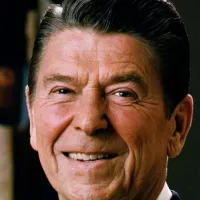
Ronald Reagan the th U S President - was a...
The United States of America is a federal republic located...
California is a U S state on the Pacific Coast...
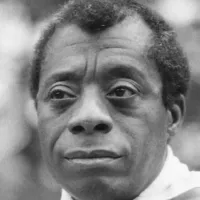
James Baldwin was a prominent African-American writer and civil rights...
The Union of Soviet Socialist Republics USSR existed from to...
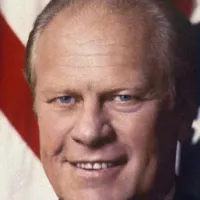
Gerald Ford the th U S President served from -...
Trending
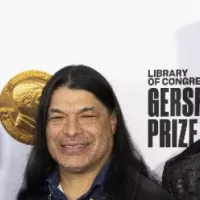
3 minutes ago Metallica Announces Sphere Las Vegas Residency: 'Life Burns Faster' Concert Series in 2026

1 hour ago Priyanka Chopra Jonas stars in 'The Bluff,' a gritty pirate action movie.

1 hour ago Lupita Nyong'o Shares Fibroid Struggle, Advocates for Women's Health in New Campaign
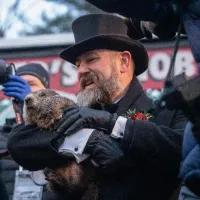
3 hours ago Souvenir Shop Manager Reflects on Final Groundhog Day with Punxsutawney Phil
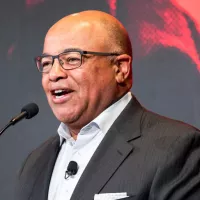
3 hours ago Mike Tirico's Inspiring Olympic Sign-Off: A Look at His Legacy in Sports Broadcasting.

3 hours ago Benny Blanco's Dirty Feet Video Sparks Internet Outrage and Divorce Suggestions for Selena Gomez.
Popular

Jesse Jackson is an American civil rights activist politician and...

Susan Rice is an American diplomat and public official prominent...

Barack Obama the th U S President - was the...

Michael Joseph Jackson the King of Pop was a highly...

XXXTentacion born Jahseh Dwayne Ricardo Onfroy was a controversial yet...

Bernie Sanders is a prominent American politician currently serving as...
